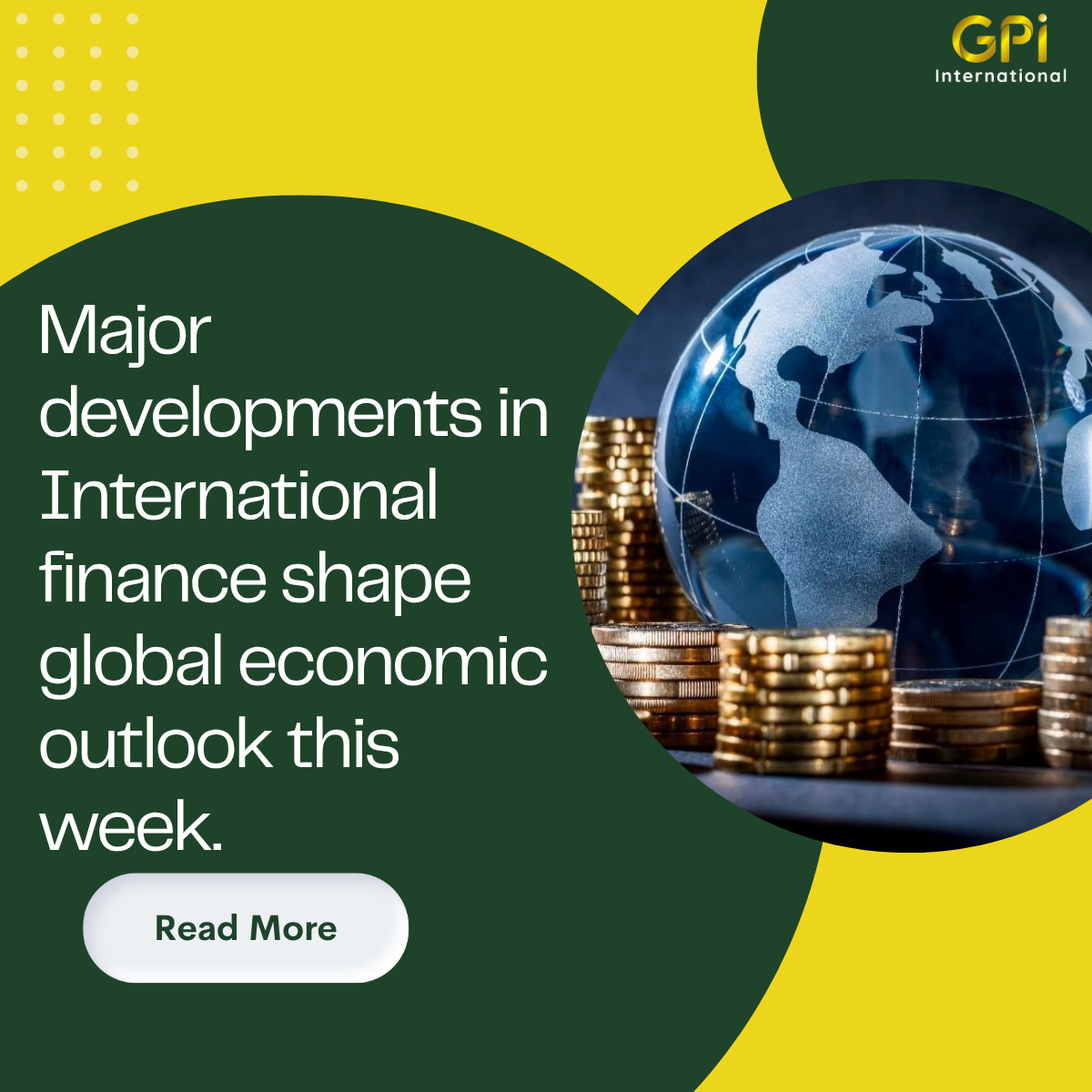Major developments in International finance shape global economic outlook this week
This week has seen several important events in the international finance arena, reflecting ongoing efforts to manage global economic challenges and enhance financial stability across regions.
IMF highlights rising risks to global growth
The International Monetary Fund (IMF) released its latest World Economic Outlook update on 15 June 2025, warning of mounting risks to global economic growth. The IMF downgraded its global growth forecast from 3.2% to 2.7% for 2025, citing persistent inflationary pressures, escalating geopolitical tensions—particularly involving the United States, China, and Russia—and volatile commodity prices.
Kristalina Georgieva, Managing Director of the IMF, stated:
“We face a fragile recovery amid increasing uncertainties. Countries must implement prudent fiscal policies and enhance international co-operation to shield the global economy from further shocks.”
G20 Finance Ministers meet to discuss regulatory coordination
G20 finance ministers convened in Tokyo on 14 June to address the rapid evolution of global financial markets. Key issues included cross-border regulatory harmonisation, risks associated with digital currencies, and joint measures against money laundering and terrorist financing.
Japan’s Finance Minister Shunichi Suzuki commented:
“In an interconnected financial system, coordinated regulation is essential to maintain stability and protect consumers worldwide.”
The meeting also discussed the progress of the Financial Stability Board’s (FSB) work on digital asset regulation, underlining the need for a consistent international approach.
Continued scrutiny of cryptocurrency regulation
The Financial Stability Board released new recommendations on 13 June targeting greater transparency in cryptocurrency markets. The report emphasised the urgency of setting international standards due to the borderless nature of digital finance and the growing market capitalisation of crypto-assets, which surpassed $2 trillion earlier this year.
Harriet Taylor, Chair of the FSB, noted:
“Without robust oversight, crypto markets pose systemic risks that could impact the broader financial system.”
Countries including the UK, the European Union, and Canada are considering tighter licensing and consumer protection rules for crypto exchanges and wallet providers.
World Bank commits to financing climate resilience projects
On 12 June, the World Bank announced a commitment of $30 billion over the next five years to finance climate resilience initiatives in developing countries. This funding will focus on infrastructure adaptation, sustainable agriculture, and disaster risk management.
David Malpass, President of the World Bank, stated:
“Climate change presents one of the greatest economic challenges of our time. Our investments aim to build resilience and foster sustainable growth for vulnerable communities.”
This initiative aligns with global efforts to integrate environmental sustainability into financial planning and development strategies, supporting the goals of the Paris Agreement.
These international developments underscore the interconnectedness of today’s financial systems and the need for coordinated policy responses. As economic uncertainties persist, global institutions and governments are prioritising collaboration, regulatory innovation, and sustainable investment to foster long-term stability and growth.
With evolving challenges ranging from inflation to digital finance, the international financial community’s actions this week set the tone for the months ahead in shaping a more resilient and inclusive global economy.






